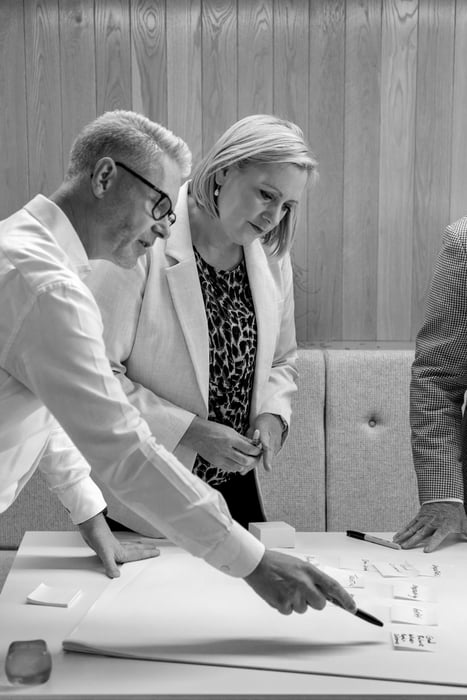Courses
Engaging training for teams, leaders, execs, and HR. Providing understanding of neurodiversity, it's value in the future of work, and pragmatic ways of fostering inclusion and harnessing strengths.


We work with organisations to build awareness, foster inclusion, and implement strategies that unlock the potential of neurodivergent talent and create inclusive, innovative teams.
From coaching neurodivergent professionals and their managers, to awareness workshops, and from consulting on policy and processes, to full neuroinclusion assessments, we help organisations embrace cognitive diversity and create the environment needed to turn this into a competitive edge.
Engaging training for teams, leaders, execs, and HR. Providing understanding of neurodiversity, it's value in the future of work, and pragmatic ways of fostering inclusion and harnessing strengths.
Expert advice for organisations and teams to create the environment to harness neurodiversity. Support to develop neuroinclusive policies, practices, spaces, and culture, that align with your business goals.
A collaborative neuroinclusion assessment of organisational policies, practices, and environments, to benchmark current progress and prioritise areas to create a more neuroinclusive workplace.
Personalised coaching for neurodivergent professionals and their managers. Providing greater understanding, improved communication, and practical strategies.
Professional public speaking on neurodiversity and leadership, including personal stories from lived experience. As conference presentations, panels, or media interviews.

Increased Innovation: Diverse perspectives lead to creative solutions and breakthroughs.
Enhanced Retention: Neuroinclusive workplaces reduce staff turnover by fostering engagement and belonging.
Improved Collaboration: Teams with greater awareness of neurodiversity communicate and collaborate more effectively.
Boosted Productivity: Supporting neurodivergent employees with the right tools and environments unlocks their full potential.
Strengthened Employer Brand: A commitment to inclusion attracts top talent and enhances your reputation as a forward-thinking organization.
Research shows neuroinclusive workplaces achieve:
-A 20% improvement in project outcomes (Deloitte, 2024)
- A 12% increase in employee retention (Ernst & Young, 2024)
- Enhanced innovation, productivity, and engagement (Harvard Business Review, 2017)

The most prevalent skills of neurodivergent individuals align strongly with the core skills that employers seek today, and predict they will need in 2030, as reported in the World Economic Forum (2025). The Future of Work Report.
The bottom line for organisations? The time to understand and embrace cognitive differences is now.
While they may also experience challenges, they often have a "spikey profile" with some exceptional areas of talent. These commonly include:
And the good news? With 10-20% of the population being neurodivergent, we are already likely part of your workforce today, you just might not realise it.

Management science has known for some time that diverse teams perform better... and we now know that neurodiverse teams create better business outcomes.
It's unsurprising when you think about it. But to achieve the benefits requires not just the presence of diversity, but also inclusive leadership.
Barriers such as:

(Almouth & Doyle, 2024).
(Diversity Works NZ, 2019).